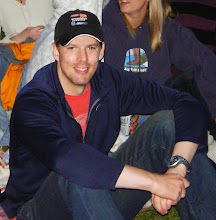I’m getting ready to finish up Anthony Thiselton’s New Horizons in Hermeneutics and the final two chapters are proving to be incredibly insightful. I must confess that as I’ve been slowly ploughing through the book I’ve managed to only catch a little glimpse of what’s going on. Reading Thiselton’s book has really been my first serious venture into Hermeneutic theory. I encountered some semiotic theory as an undergraduate, read bits and pieces here and there, and I have even taught some introductory literary theory as a part of a class on interactive narratives, but this stuff is DENSE!!! It would take many more months of critically interacting with each chapter before I would feel comfortable saying that I have any sort of handle on the material. I don’t know that I would recommend starting with Thiselton’s book if you’ve never read anything on hermeneutical theory. Never-the-less as I’ve been reading I’ve caught glimpses of how the material is important to how various reading communities and myself approach and interpret the Bible. It’s really been in the final two chapters though that the lights have started to come on as Thiselton works out some of the implications of the material for pastoral theology. The final two chapters make the effort of working through the material infinitely worth it. So while I don’t’ know that I would recommend Thiselton’s book for someone who hasn’t read anything on hermeneutical theory, I don’t know that I wouldn’t recommend it either. I wish this sort of material was required reading for everyone who picks up the Bible and engages in debate on its subject matter. It would bring much more humility to the debates happening, and much more constructive interaction between different communities of interpretation. I just also wish that it wasn’t so difficult to get a handle on this material.
Perhaps Scott McKnight of Jesus Creed may have captured my thoughts best when he wrote of Thiselton’s newest volume, The Hermeneutics of Doctrine, that:
Anthony Thiselton is the world's best scholar on how to read and interpret Scripture — on the art and "science" of hermeneutics. Unfortunately, his prose falls at the opposite end of the spectrum. Now a confession: along with others, I will stand in line to buy Thiselton's dense tomes so I can read them. Why? For no reasons other than his brilliant syntheses, his knack for bringing scholarly literature into focus, and his uncommon common sense that, like someone who can deftly tap rocks and bring forth diamonds, sheds deep light on dense subjects. But I never crack open Thiselton without knowing it will be hard work.
Thanks to Michael Bird over at Euangelion for originally pointing out McKnight’s review.

1 comment:
Hermeneutical theory is one of my favorite topics of study, so I've read a good deal of Thiselton. I have appreciated his approach to Gadamer and Wittgenstein. I wish he would give more consideration to Derrida and other later, post-structuralist thinkers, but for a conservative, he's way ahead of the crowd.
In any case, if you ever want to post or kick around some of the stuff in New Horizons, drop me a line and I'd love to be a part of a discussion. NH is a fantastic work.
Post a Comment